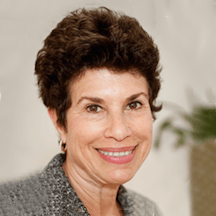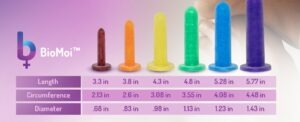Celebrating Women in Science: An Insightful Interview with Dr. Whiteman

Dr. Neysa Whiteman, cofounder of BioMoi
As we mark the International Day of Women and Girls in Science, it is important to acknowledge the significant contributions of women in the field of science and technology. We also interview Dr. Whiteman, the founder of BioMoi™. In this interview, Dr. Whiteman discusses her journey as a woman in science and the importance of women’s health.
In addition to discussing the importance of women’s representation in science, Dr. Whiteman also touched upon the critical role that women’s health plays in the overall well-being of society. She explained how her work at BioMoi is focused on addressing the unique health needs of women, and how this can have a positive impact on the health of future generations.
Get to know Dr Whiteman
Dr. Neysa Whiteman is a Board-Certified Ob/Gyn with a strong history of practice in women’s health. She trained in Los Angeles at UCLA, USC and Kaiser, and joined a practice in Orange County in 1984 to practice Obstetrics and Gynaecology. In 1990 she moved to San Diego and limited her practice to gynaecology. Viewing herself as an advocate for women, Dr. Whiteman enjoys working to solve women health care concerns during the different phases of life. In the past few years, she has become especially concerned with menopause and the vaginal changes it can cause. With so many advances in that arena, it is particularly rewarding to be able to help women improve their sexual life.
Questions:
How did your journey in science start?
My mother was a pediatrician and my father was an engineer. When I was young my father would take me to the Natural History Museum and The Science and Industry Museum in Exposition Park in Los Angeles while my mother was making rounds in the hospital on the weekends. I was fascinated and I loved reading books about animals and plants. Ultimately I graduated with a Zoology BS from UCLA and Medical Degree from USC. I went on to do training in Obstetrics and Gynaecology and I am Board Certified.
What made you pick the field of female sexual health?
I have always been interested in female sexual health. As a gynecologist, I am the first stop for women who complain of dyspareunia, (painful intercourse) or problems with libido or orgasm. I was also doing a lot of work with menopause and hormone replacement and many of those complaints go together. I enjoyed being able to help women find more enjoyment in their sexual relationships.
Are there any other fields you have experimented with?
I was active in the field of genetics when genetic testing was first being used to identify women with familial breast cancer- BRCA 1 and BRCA 2. That soon became “MyRisk” testing. I had the privilege of working with several women with breast cancer who had been experiencing vaginal symptoms as a result of low estrogen levels or Arimidex, an estrogen blocker. It was a rewarding experience to be able to help these women during a challenging time in their lives.
What work have you done as an advocate for women?
I went to lobby on Capitol Hill with ACOG, American College of Obstetrics and Gynaecology, several times to advocate for Women’s Health Issues. For example, prolonging mandated postpartum insurance coverage from 6 weeks to one year. I walked for Women’s Reproductive Rights. I am a supporter of Planned Parenthood and worked there in the past.
What advice would you give to young women who are wanting to work in science?
Work really hard! Understand at the outset- it is not a 9-5 endeavor.
In your opinion, which changes are needed in the scientific system to be more attractive to women in science and possible future scientists?
There is a long history of inequity for women in the workplace both in pay, numbers and in respect. Now, there are more and more women physicians and scientists. A lot has been done to make positive changes in the workplace. For example, scheduling can make allowances for women to be pregnant, parent, and still continue their training and practices. But there is still a long way to go.
What is your biggest achievement in your field?
Providing healthcare to women- their daughters, their mothers and their friends. And being trusted with women’s most intimate secrets and concerns.
What was it that encouraged the idea of BioMoi?
There are a few things that gynecologists use and recommend inserting in the vagina. In the arena of sexual health we decided that adding Silver antimicrobial product into the production of the dilators would make women feel safer when using them and make them easier to clean.
Did you have any role models that influenced your decision to work in science?
My mother was a pediatrician and many of her friends were also women in medicine at a time when there were few women physicians. It was a natural choice. I spent a lot of my childhood with my mother when she made rounds in the hospital. Back then the nurses were happy to watch me and there was always egg custard!
What is the most common issue you have seen in women’s health?
Women’s health is an important issue that involves a wide range of concerns, from reproductive rights and access to healthcare to sexual health and wellness. While some challenges, such as the repeal of Roe v. Wade, have had a significant impact, it is important to remember that there are also many positive developments and resources available to support women’s health and well-being.
Additionally, I have witnessed common issues regarding access to information, it is important to have a universal approach towards women’s health that includes various aspects such as contraception, sexually transmitted diseases, vaginal and bladder infections, menopause changes, and risk and benefits of hormone replacement therapies.
Dr. Whiteman’s insights and achievements serve as a reminder of the valuable contributions women and girls make in the field of science, and the importance of encouraging and supporting their participation in the industry.
We hope that this blog has not only highlighted the brilliant work of Dr. Whiteman, but has also inspired readers to take action in promoting gender equality in science.

